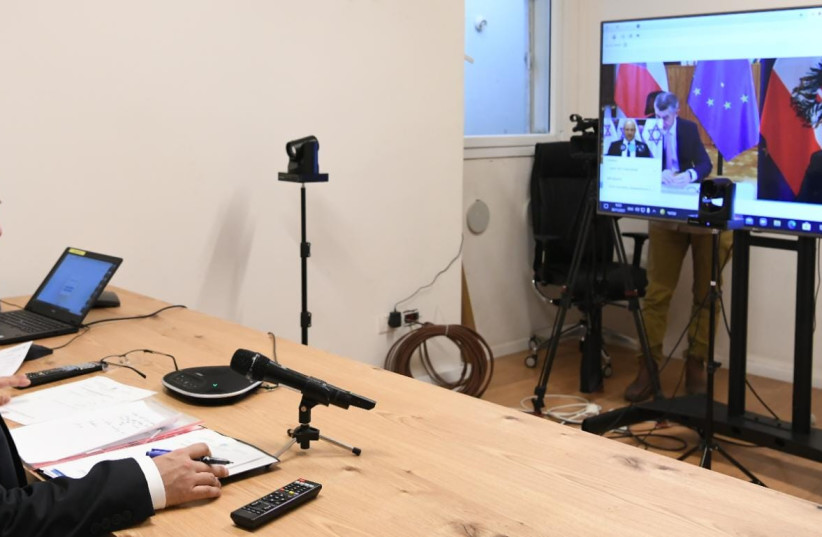Prime Minister Naftali Bennett spoke with Austrian Chancellor Alexander Schallenberg and Czech Prime Minister Miloš Zeman on Tuesday afternoon about dealing with COVID-19 and the new Omicron variant.
The conversation was initiated by Schallenberg who wanted to hear Israel's insights on the matter considering the success in overcoming the fourth wave and vaccination campaign.
The leaders shared their insights and challenges and agreed to keep in contact as an attempt to maintain public health.
Regarding the importance of the booster shot, Bennett said that it was important because it "has a quick influence. Within five to six days, we see a fast change, both in the protections against catching the virus and severe illness."
Another topic discussed was the closing of the borders.

"We are trying as much as possible to prevent the entry of the Omicron variant to Israel," he said. "Therefore, while we're still unsure about the variant and the numbers are still small, we have closed the borders to foreigners.
Bennett also explained that the Shin Bet cellphone surveillance of Israelis was being used because "it's still very early, and there is a lot of unclarity."
"This is a very important conversation," Bennett concluded. "There's a lot we can learn from each other. Sharing insights and knowledge between leaders is very efficient. The COVID virus, and especially the new variant, are a threat to every one of the countries in the world. When we work together on the issue, we become more effective. Together, we can protect our countries, their people and our economy."
